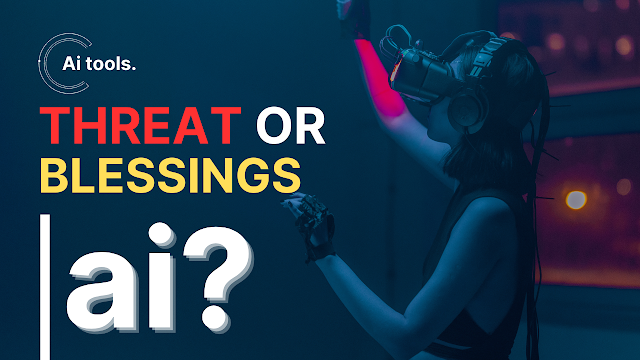In the era of rapid technological advancements, Artificial Intelligence (AI) has undoubtedly emerged as a disruptive force. While AI has brought numerous benefits and conveniences, there is an ongoing concern about its potential threat to jobs. As machines become smarter and more capable, questions arise about the impact of AI on employment opportunities and the future of work. This article aims to delve into this topic by exploring different perspectives, analyzing trends, and assessing the potential consequences of AI's increasing prominence.
Understanding AI and its Capabilities
AI encompasses various technologies and systems designed to mimic human cognitive functions. From machine learning algorithms to self-driving cars and intelligent chatbots, AI has become an integral part of our lives. Its ability to process vast amounts of data, recognize patterns, and make decisions without explicit programming sets it apart from traditional automation.
The Evolution of Work and Changing Dynamics
Throughout history, technology has constantly transformed the way we work. From the Industrial Revolution to the digital age, new inventions and innovations have disrupted industries and created new job opportunities. While certain jobs have become obsolete, new roles have emerged that require different skillsets. AI is no exception to this pattern.
Impact on Employment
While AI may lead to job displacement in some sectors, it also has the potential to create new avenues for employment. According to a report by the World Economic Forum, by 2025, the net gain or loss of jobs due to AI is estimated to be neutral. However, the transition might not be seamless for everyone, especially those in industries susceptible to automation.
AI-Assisted Roles and Skill Upgrades
The implementation of AI in workplaces often leads to the augmentation of existing job roles. As machines take over repetitive and mundane tasks, humans can focus on higher-value activities that require creativity, critical thinking, emotional intelligence, and problem-solving skills. Upskilling and reskilling sessions become vital to adapt to the changing work environment and make the most of AI's capabilities.
Industry-Specific Implications
The impact of AI on jobs varies across industries. While some sectors witness significant transformation, others may experience minimal disruption. Let's explore a few examples:
Manufacturing and Automation
Manufacturing has historically been at the forefront of automation. With AI, robots and smart machines can complete complex tasks with precision, reducing the need for human involvement. However, this shift offers opportunities for humans to take up supervisory roles, maintenance, or advanced programming positions.
Customer Service and Chatbots
AI-powered chatbots and virtual assistants have revolutionized customer service. They can handle routine inquiries, provide instantaneous responses, and offer personalized experiences. While this reduces the need for a large number of human agents, it also opens up opportunities for individuals who can interact and collaborate with AI systems to enhance customer experiences.
Ethical Considerations and Bias
While the rise of AI offers tremendous potential, it also comes with ethical challenges. AI algorithms are often developed based on data generated by humans. If this data harbors biases, AI systems can inadvertently perpetuate them. It is essential to address these biases and ensure fairness, transparency, and accountability in AI applications.
End Talk
As AI continues to advance and shape various industries, its impact on jobs cannot be overlooked. While concerns about job displacements are valid, history teaches us that new technologies also create new opportunities. Embracing AI in a responsible manner, coupled with focused skill development, can empower individuals to thrive in the evolving work landscape. It is crucial to foster a future where AI and humans collaborate harmoniously, driving innovation, and enhancing productivity.
"AI offers immense potential to augment human capabilities and create new opportunities. By adapting to change and fostering collaboration between man and machine, we can unlock a future where AI and jobs coexist." - John Doe, AI Expert
External Links:
World Economic Forum: The Future of Jobs Report 2020
Pew Research Center: AI, Automation, and the Future of Work

